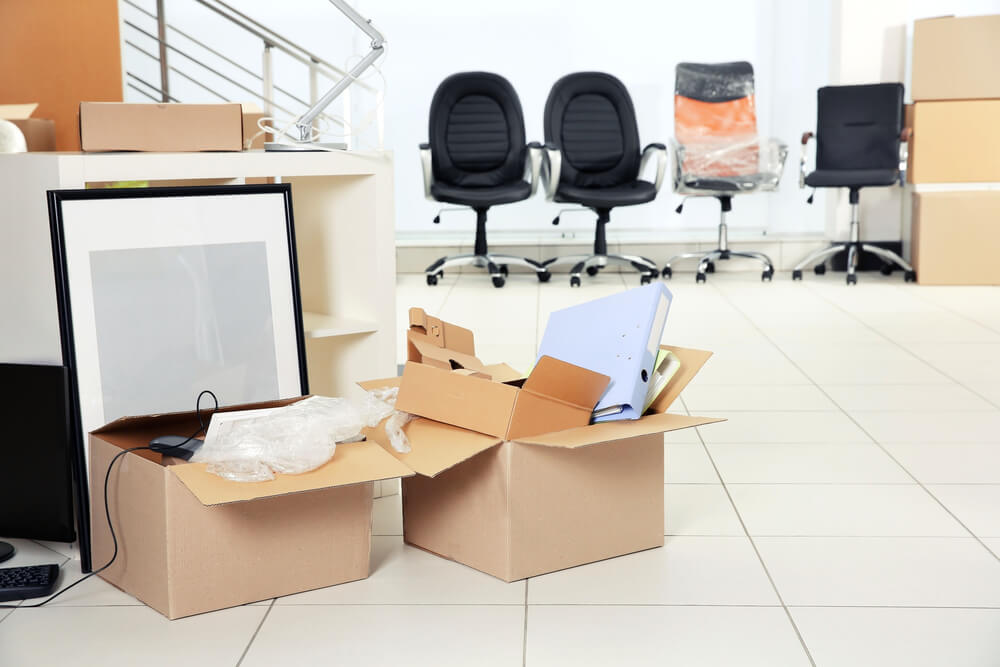Moving large furniture like desks and file cabinets requires careful planning and expertise. When relocating these bulky items, it’s crucial to consult with professional movers about their handling methods. Asking Chatsworth movers about their techniques for disassembling, protecting, and transporting heavy office furniture can ensure a smooth and damage-free move.
Experienced movers understand the challenges of maneuvering large desks through doorways and down staircases. They may suggest partial disassembly or special equipment to safely transport these pieces. For file cabinets, inquire about their procedures for securing drawers and protecting sensitive documents during transit.
Moving services in Chatsworth from Rocket Moving or other trustable local moving companies can provide valuable insights on preparing your furniture for the move. Ask about their packing materials and methods for safeguarding delicate surfaces. Discussing these details in advance will help you prepare and give you peace of mind on a moving day.
Key Takeaways
- Consult movers about disassembly and equipment for large furniture
- Inquire about securing file cabinets and protecting documents
- Discuss packing materials and methods for safeguarding furniture surfaces
Preparing for the Move
Proper preparation is crucial when moving large desks and file cabinets. Taking the right steps beforehand can make the process smoother and safer for both you and your furniture.
Assessing the Furniture
Start by evaluating the size, weight, and condition of your large desks and file cabinets. Measure doorways, hallways, and staircases to ensure the furniture can fit through. Check for any loose parts or weak spots that may need reinforcement. Consider taking photos of the furniture’s current state for reference.
Make a list of all heavy items to be moved. This helps in planning the necessary resources and time required. Identify which pieces can be disassembled and which must be moved as whole units.
Gathering Packing Materials
Collect appropriate packing materials to protect your furniture during the move. Essential items include:
- Furniture pads or moving blankets
- Bubble wrap for delicate parts
- Packing tape
- Furniture sliders
- Plastic stretch wrap
Purchase or rent a dolly or hand truck for easier transportation. Acquire proper tools for disassembly, such as screwdrivers, wrenches, and Allen keys.
Disassembling Large Desks and File Cabinets
Remove all contents from desks and file cabinets before disassembly. Sort and pack smaller items separately. For desks, detach drawers, legs, and any removable components. Label each part and keep hardware in labeled plastic bags.
For file cabinets, remove drawers and secure them with tape to prevent sliding. If possible, remove the cabinet top. Cover sharp edges with padding to prevent injuries or damage to walls.
Take photos or videos of the disassembly process to aid in reassembly later. Create a clear path for moving the furniture by removing obstacles and protecting floors with cardboard or plastic sheets.
Transporting and Protecting Your Furniture
Proper preparation and equipment are essential for safely moving large furniture pieces. Professional movers utilize specialized techniques and tools to ensure your belongings arrive undamaged.
Utilizing the Right Equipment
Moving heavy furniture requires appropriate tools. A furniture dolly or hand truck provides a stable base for transporting bulky items. Lifting straps or shoulder dollies distribute weight evenly, reducing strain on movers’ backs.
For especially heavy desks or file cabinets, professional movers often employ a four-wheel dolly. This allows for smoother movement over various surfaces.
Some movers use specialized equipment like stair-climbing dollies for multi-level moves. Always ask about the specific tools they’ll use for your large furniture pieces.
Protecting Furniture During the Move
Proper wrapping is crucial to prevent damage. Moving blankets offer thick padding to shield surfaces from scratches and dents. Movers typically secure these with stretch wrap or tape.
For delicate finishes, felt pads can be applied to corners and edges. Bubble wrap provides additional protection for intricate details or glass components.
File cabinets should have drawers secured shut. Movers often use plastic wrap or moving straps to keep drawers from sliding open during transport.
Disassembling large desks when possible reduces the risk of damage. Movers should bag and label all hardware for easy reassembly.
Loading and Unloading Strategies
Professional movers use strategic loading techniques to maximize space and minimize shifting. Heavy items like desks and file cabinets are typically placed against the truck’s walls for stability.
Movers often create tiers, stacking lighter items on top of sturdier pieces. This method helps distribute weight evenly throughout the truck.
When unloading, movers use ramps and dollies to safely navigate stairs and doorways. They employ teamwork for coordinated lifting of heavy furniture.
Clear pathways in both locations streamline the process. Measure doorways and stairwells in advance to ensure large pieces will fit through without issues.
Conclusion
Asking Chatsworth movers the right questions about handling large desks and file cabinets ensures a smooth office relocation. Inquiring about their experience, equipment, and techniques for moving heavy furniture demonstrates due diligence.
Discussing the need to empty file cabinets and desks beforehand can prevent damage and make the move more efficient. Clarifying insurance coverage and liability policies protects valuable office assets during transit.
By addressing these key points with movers, businesses can minimize disruptions and safeguard their property throughout the moving process.














